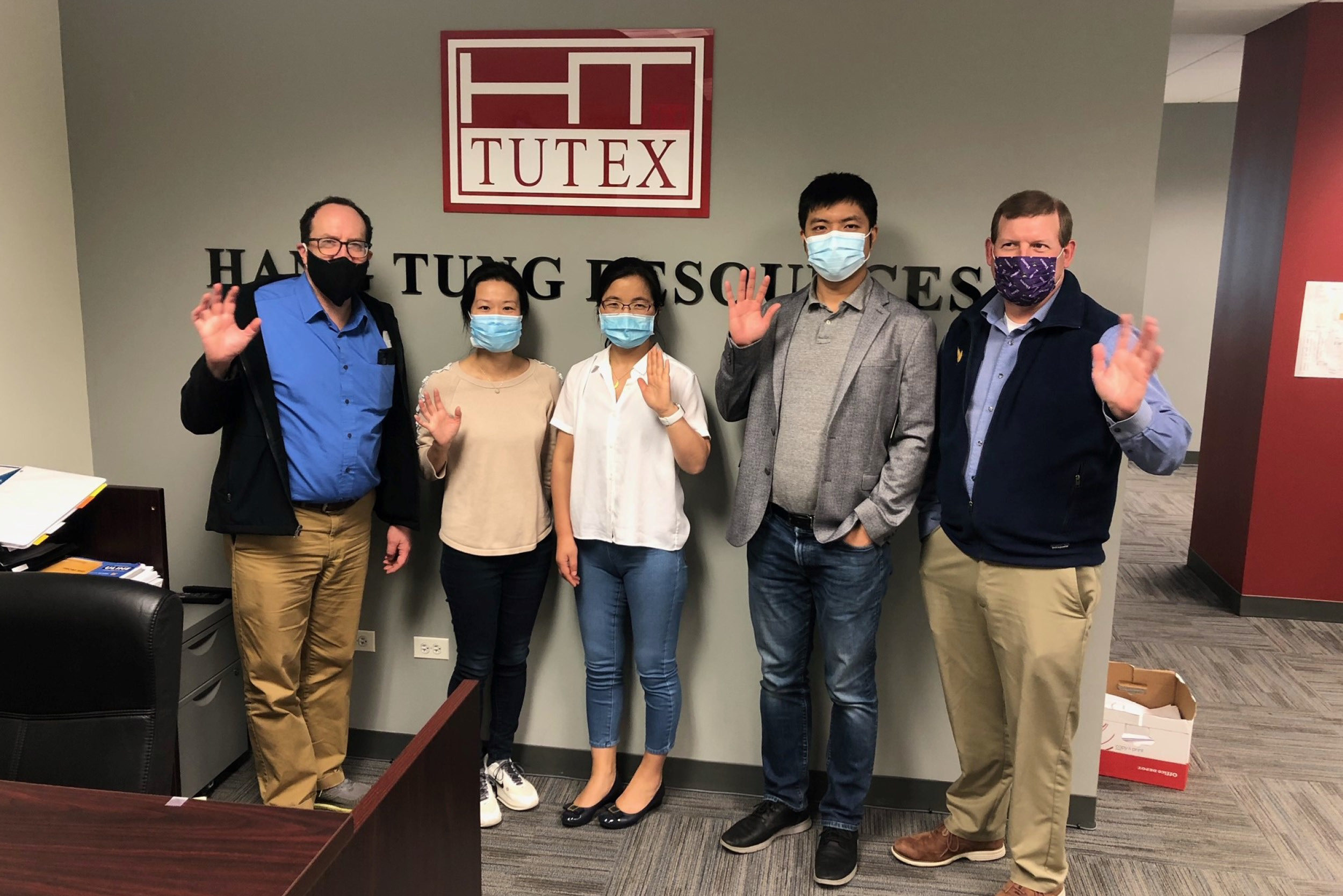SSGA staff visits Illinois members
Staff from the Specialty Soya and Grains Alliance (SSGA) hit the road in early May, traveling to Illinois to visit various members and supporters in the Land of Lincoln.

SSGA Executive Director Eric Wenberg and Market Development Project Manager Lee Steinhauer visit with staff from Hang Tung Resources during their recent trip to see members in Illinois.
“As business travel makes a comeback, many of us were a little surprised by how much meeting in person meant,” SSGA Executive Director Eric Wenberg said. “Lee and I were grateful to join our friends and learn about what’s needed to keep the premium grains business moving forward.”
Wenberg was joined by Lee Steinhauer, SSGA market development project manager, in their visits to representatives of Hang Tung Resources, US Nisshin Shokai, Clarkson Grain Company, Global Processing and others.
“It was a really good trip,” Steinhauer said. “We were able to talk to them about where they need help and where they appreciate us. We were happy to get out and see people face-to-face again, and they were happy to see people, too.”
Hang Tung Resources, an investment group that has grown into a multi-segment group covering grain, oilseed and textile commodity trading, as well as agricultural processing and other services, connects SSGA to operations overseas as a U.S.-based multinational.
Nisshin Shokai, a trading company that specializes in the niche demand for specialty soy ingredients, features world class logistics and a solid book for customers. Despite all its obstacles, the company is making trade happen for their customers. “It takes special, caring people to keep trade moving,” Wenberg said during in the visit.
Clarkson is a grain, oilseed and ingredient supplier specializing in IP, non-GMO and organic crops. Company founder Lynn Clarkson is credited in 1974 with beginning the movement of segregated direct farmer supply that grew into the Identity Preserved marketplace.
Global Processing is a supplier of non-GMO food-grade soybeans. SSGA Vice-Chair Rob Prather is the chief strategic ambassador for Global Processing. He puts in volunteer hours each week for SSGA to make the world grain business a better environment for the producer and processor. Customers both domestic and international keep asking for quality, he said.
“If they ask for clean soybeans in a 30 kg bag, they expect every bag to be 30 kg, no more, no less,” he said. “We pack them practically as well as Mars loads M&Ms, and our buyers love it. IP quality means I care.”








